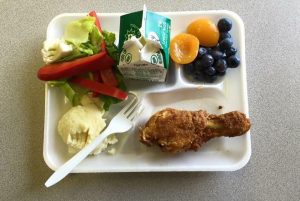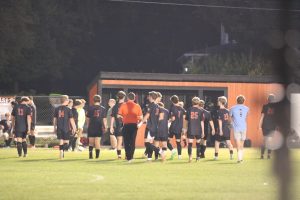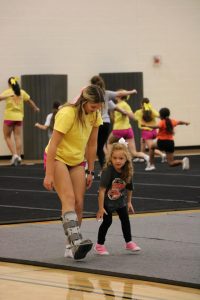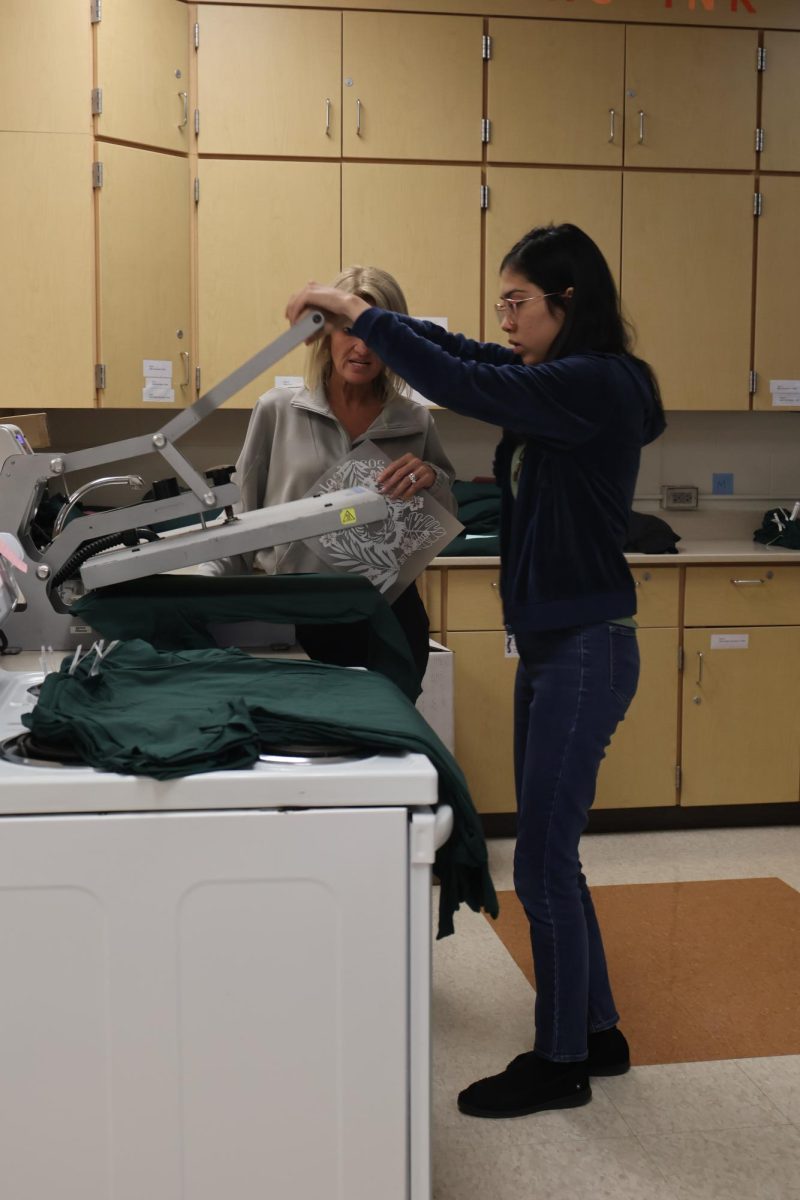Why Fenton High no longer offers Home Economics
December 20, 2019
Schools all around the country have gotten rid of Home Economics classes–a staple elective in most schools during the early twentieth century—because of budget cuts. Some schools kept the course and renamed it Family and Consumer Sciences (FACS), others are getting Home Ec. back, and some may not offer it again.
“I think people were sad when we got rid of Home Economics; people were always interested in them,” Principal Mark Suchowski said. “I think it is important that students be prepared for as many things as possible after high school, and the lessons learned in Home Ec. classes were definitely applicable to students. Though I think our current course offerings are pretty good, I would absolutely like to see Home Ec. classes added again.”
Although Fenton High administration would like to bring Home Ec. back, it just isn’t the most practical choice. Over the years of the twenty-first century, budget cuts and a new focus on standardized tests caused schools to rethink their course offerings and many electives were cut, including Home Ec.
Tove Danovich, a writer for National Public Radio (NPR), said “in 2012 there were only 3.5 million students enrolled in F[A]CS secondary programs, a decrease of 38 percent over a decade. Many blame an ongoing shortage of qualified teachers, while others worry that continued focus on testing, along with budget slashing, will make it hard to bring F[A]CS electives back into the curriculum.”
Fenton High had a similar issue. With a retiring teacher and a new outlook on standardized testing, Home Ec. was removed from the course offerings.
“A couple of things happened,” Suchowski said. “Originally, we renovated room 3-156 and we had a full-time teacher, Janet Kidd, to make the class possible. Then, she retired when we were shrinking our elective offerings, and, rather than hiring someone new to teach Home Ec. and putting another elective teacher out of a job, it just didn’t make sense [to keep those courses, so they were cut]. Those programs were very viable so we just didn’t offer them when she stepped away, hoping someday, that we would reinstate them. That day just hasn’t come yet.”
Some schools managed to keep Home Ec. and/or advance it into FACS to keep students interested and to meet the needs of standardized testing such as combining a project with a multiple-choice test for a summative exam.
Concordia Lutheran High School FACS Teacher Lillian Anderson said, “these courses introduce students to careers in the hospitality industry, education, marketing and other courses relevant to Family and Consumer Sciences. We are part of the Practical Arts department at the high school.”
Some schools in the area have these same classes. Our neighboring town, Holly, offers FACS classes at their high school. Despite this, Home Ec. has diminished around the country, which could mean less application of studied subjects to real-life in America.
Holly High School FACS Teacher Miranda Barth said, “F[A]CS has been cut not only from public middle and high schools–but also from colleges and universities as an option for a major. However, there is a great need for more education with regard to mental health, relationships, and safety. These topics are at the core of all of our courses within Family and Consumer Science. We need the State and National Government to realize this, value these courses and demand that they be incorporated into public education.”
Many students share similar sentiments with their teachers in regards to Home Ec. It’s a highly applicable subject, meaning it can make an impact on students’ lives in many different ways. Kate Brown, a senior at Holly High School, has been taking FACS classes throughout her entire high school career.
“I took Health my freshman year, Parenting and Child Development sophomore year, Teach Cadet junior and senior years, and Interior Design my senior year,” Brown said. “I have been greatly impacted by all of these classes, but the one that impacted me the most was Teacher Cadet. Without that class, I would have no idea what I wanted to do with my future, but now I know I want to be a gym teacher. I spent a trimester in each of the following grades: Young 5s, 1st, 3rd, 5th, 7th, and 8th grade. Finally, I found that physical education is right for me.”
Realizing the impact these courses have had on students, and thus, the importance of them, more schools are making efforts to keep or re-offer FACS, while others aspire to have it again one day. Fenton is the latter of the two.
“If we brought Home Ec. back, it might not even be called Home Ec. any more,” Suchowski said. “It might be [called] Culinary Arts, where you take this prerequisite in ninth and tenth grade as an elective that would help you to go on and study at GCI, where they have a really intensive study in that subject area. That’s what I would like to see, something that fits in.”
The end of Home Ec. has its advantages and disadvantages. It marked a new era for many schools, showing the new focus on standardized testing. However, it decreased the amount of offered electives and got rid of an entire field of study. FACS is all that remains of Home Ec., and is only offered in some schools. Luckily, the modern version of these courses has a new outlook on the subject that is inspiring more and more schools to re-examine their course offerings and consider bringing Home Ec. back.









